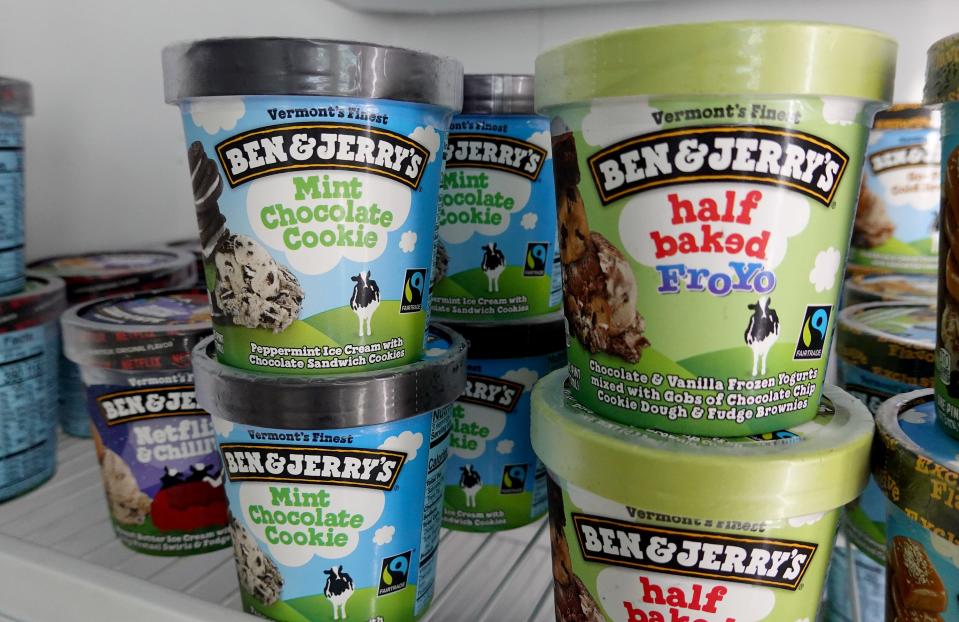Americans are spending money according to their values. Companies need to realize that.
It is time for U.S. corporate giants to bare their souls.
This has long been the moral argument of corporate social responsibility advocates urging influential businesses to support social and political causes. But now, it’s a matter of profits and losses.
Most companies would rather leave their political and social preferences a mystery; they want to appeal to as many customers as possible, on both sides of the aisle. But new research from Ipsos shows that more than half of American consumers shop with their political or social values in mind – a sign that even the most boundary-crossing companies will not be spared from America’s political polarization.
In a nationally representative survey of American adults this summer, over half said they often do at least one of the following:
Choose to support businesses because they agree with their political and social values.
Choose not to support businesses because they disagree with their values.
Talk to other people about the political and social values of a particular business.
Within this group of Americans, 1 in 8 regularly take all three actions and don’t make compromises. We call this more values-driven group “partisan consumers.”
Consumers politicize favorite brands
Partisan consumers exist in about equal numbers across the parties. But Democrats are significantly more likely to want and expect their favorite brands to take a stand on issues they care about. These issues generally correspond to those championed by other left-leaning Americans – climate change, racial justice and public health.
Republicans disproportionately prefer that businesses stay out of politics. This becomes less surprising when considering that a plurality of Republicans perceive brands that champion social issues as tending to lean more liberal than conservative these days.
Yet partisan consumers matter. Not only are there tens of millions of them, they also tend to be more educated and therefore have greater spending power – the target demographic for many brands.

Some smaller, niche brands have long appealed to more partisan demographics by selling their values alongside their products. Think of Ben & Jerry’s Ice Cream, which has always linked its branding and flavors to left-leaning political activism (“Hubby Hubby”) and hippie culture (“Cherry Garcia,” “Phish Food”).
Similarly, benefit corporations are driven by their values, even if it means upsetting their consumer base. Think of Patagonia, once the unofficial vest maker for Wall Street and Silicon Valley suits. The environmentalist outdoor company stopped selling clothing with customized logos to limit corporate-branded clothes getting tossed when people change jobs.
Johnson: NAACP: Voting rights are not a partisan issue. So why is Congress blocking progress?
Other companies have stepped more directly into the partisan fray. For instance, some retailers recently pulled MyPillow products from their shelves after the company's CEO publicly backed former President Donald Trump’s false claims of election fraud.
Expect more of this to come. Increasingly, companies otherwise disinterested in politics have been pressured into taking stands or demonstrating their values by consumers organized via social media or by their own employees and partners. Think Delta Air Lines and Coca-Cola and the repudiation of Georgia’s voter suppression legislation in the wake of the 2020 election.
Party affinity no longer only drives public policy and political preferences. Today, it also determines brand favorability.
This leaves brands with a Catch-22. On the one hand, they’re facing pressure to align themselves with broader social (and often liberal) values. On the other, they must also contend with a more conservative consumer base that might be disaffected by that very same messaging.
Partisan politics in American business
Which companies are most affected by America’s partisan divide?
Among 30 of the biggest brands in the U.S. market, Costco, Visa, Netflix and Home Depot achieved the highest favorability scores across all Americans, including among partisan consumers. This is particularly impressive for Home Depot and Netflix, whose customers are disproportionately Republican and Democratic, respectively.
Other top brands and companies’ consumer markets are more tilted. Democrats disproportionately favor and consume Apple, Google, HBO and Starbucks, while Republicans disproportionately favor and consume products from beermaker Anheuser-Busch, Ford, Home Depot and Walmart. These discrepancies widen among partisan consumers.
Hogan: Maryland governor to Congress: The infrastructure bill drama is arcane. 'Just get it done.'
The brands that suffer the steepest drops in favorability among partisan consumers who shop with their social and political values in mind, compared with Americans on average, are Walmart (a -42% discrepancy in favorability), Amazon (-40%), Nestlé (-36%), Microsoft (-34%) and Walt Disney (-31%). These companies do much better among consumers less concerned with their brands’ politics.
Of course, the partisan tilt of a brand’s consumer base should not be conflated with the brand’s expressed politics. Google has long been in the crosshairs of anti-trust Democratic political officials, while Walmart has acted quickly on recent public health recommendations despite Republican objections.
As culture wars have made American politics increasingly a matter of lifestyle, it was inevitable that our political choices would eventually map on to our consumer choices. This trend is now sucking businesses and brands into the vortex.
While picking a side – whether red, blue or purple – might limit their market reach, companies also must consider what causes they value and are willing to champion. If they don’t, brands risk losing their appeal in our politicized world.
Clifford A. Young (@CliffAYoung) is president of Ipsos Public Affairs USA. Justin Gest (@_JustinGest) is an associate professor at George Mason University’s Schar School of Policy and Government.
You can read diverse opinions from our Board of Contributors and other writers on the Opinion front page, on Twitter @usatodayopinion and in our daily Opinion newsletter. To respond to a column, submit a comment to letters@usatoday.com.
This article originally appeared on USA TODAY: American shopping habits and brands are increasingly politicized

